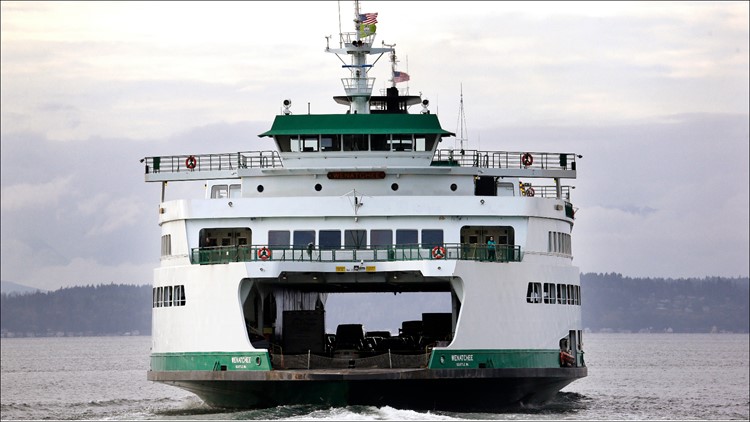Editor's note: The attached video originally aired in 2018.
SEATTLE – Washington State Ferry fares will be going up again by over $1 by next summer.
On Tuesday, the Washington State Transportation Commission approved a 2.5% fare increase for cars beginning in October and another 2.5% increase for cars beginning in May. Passenger fares will also increase by 2% in October and May, and charges for oversize vehicles on the Anacortes-Sidney B.C. route will increase an extra 5%.
State ferries will also implement an additional 25-cent surcharge on fares beginning in May, which will go toward building new ferry boats.
In October, drivers with standard-sized vehicles between 14 and 22 feet long will pay $15.75 on the Seattle-Bremerton, Seattle-Bainbridge, and Edmonds-Kingston routes; passengers will pay $8.65. In May, those same drivers will pay $16.40, and passengers will pay $9.05. In peak season, which is May 1-September 30, drivers will pay $20.40.
Find a full list of new ferry fares here.
In past years the fare hikes have occurred in October, but moving the second year increase to May allows state ferries to collect an extra $1.5 million revenue, according to the agency.
The fare hike stems from the state Legislature’s budget, which required $407.9 million in fare revenue and is $9.6 million more than state ferries could provide without a fare increase. The governor also signed ESHB 2161, which requires the state transportation commission to add a capital surcharge for ferry vessel construction or purchases.
Ferry fares were last raised in October 2018.
In addition to fare increases, the transportation commission approved two pilot programs to test out reduced fares for low-income riders and using the Good to Go! system to collect ferry fares electronically.
The reduced fare pilot program would begin in at least 2020 and is contingent on receiving funding from the state Legislature. It would last three years.



